حوزه های تخصصی, مطالعات سیاسی و بینالملل
Given the fact that the totality of the West – the United States plus Europe – has been adopting a confrontational position against the Islamic Revolution in Iran since the outset and the two sides’ large-scale approaches to international system have been at loggerheads, the Islamic Republic of Iran has been trying since its beginning to expand relations with the East, especially China and Russia. In doing this, it has been trying to fill the void, which was created after the West was phased out of Iran’s economy and politics, through cooperation with these states, which are one way or another in a common anti-West front with Iran.
However, following the termination of the Cold War and due to international and regional developments, which bolstered pragmatism in Iran’s foreign policy, an effort was started to normalize relations with the West in parallel to expanding relations with the East. Since that time, the Islamic Republic of Iran has been trying at various junctures to boost its relations with the West, especially the European Union, so that, while reducing dependence on the East, it would be able to balance its foreign policy and reduce tensions with the Western states. Of course, this effort was marked with relative success at first, but every time that the United States changed its approach and policy toward Iran and increased its hostility, the situation changed and, in reaction, the Islamic Republic of Iran followed its “look to the East” policy with more vigor. In fact, for more than three decades, the West has been constantly pushing Iran toward the East. In the most important and the latest example of this trend, Iran’s efforts during the first term of President Hassan Rouhani to improve relations with the West and reduce dependence on the East hit a stone wall after the United States went back on its commitments and left the nuclear deal with Iran, which is officially known as the Joint Comprehensive Plan of Action (JCPOA). Another factor that led to this situation was failure of European states to live up to their commitments as a result of which it seems that Iran is once again pursuing its look to the East policy with more intensity and seriousness.
“Look to the East” in Iran’s foreign policyThe policy of looking to the East, as a counterbalance to the West, has been always prominent in the strategic thinking of the political system of the Islamic Republic of Iran. However, this issue has not been pursued with the same intensity under all Iranian administrations. The factor that highlighted the need to bolster ties with the East for Iran was the urgency to rebuild the country’s economy following Iraq’s war with Iran. At that juncture, Iran had no significant relations with the Western countries and developed cooperation with countries like China, India and Russia in order to reconstruct its economy.
In addition to developing relations with the East, Iran made an effort to mend fences with the West as well. The most important measure in this regard was an effort by the administration of former Iranian president, Hashemi Rafsanjani, to normalize Iran’s relations with the United States. To do this, indirect negotiations were held with the US administration of former president, George H. W. Bush, and it was decided that in return for Iran’s cooperation for the liberation of American hostages in Lebanon, the US administration would release Iran’s frozen assets and remove anti-Iran sanctions to clear the path toward normalization of the two countries’ relations. However, after American hostages were released through Iran’s help and mediation, the US president not only failed to honor his promises, but also accused Iran of harboring terrorism. Later on, although the Iranian government tried to improve its relations with the European countries, it came to realize the importance and necessity of relations with the East.
Economic requirements and considerations accounted for one of the most important reasons behind Iran’s tendency toward the “look to the East” policy, but in reality, economic requirements and considerations were not the sole reason. Under the administration of former president, Mohammad Khatami, new efforts were launched to bolster cooperation with the East. However, in parallel to those efforts, then Iranian administration also tried to boost relations with the West. In line with the principle of reducing tensions in foreign policy, which Khatami pursued, an effort was made to reduce hostility between Iran and the United States to gradually pave the way for improvement in relations. However, this time around, despite early advances, the United States once again adopted a hostile policy toward Iran and grouped Iran with two other countries in the so-called “Axis of Evil.” On the other hand, although European countries expanded their political and economic relations with Iran at first, they gradually sided with the United States and ended dialogue with Iran. Despite Iran’s constructive measures in relation to its nuclear program and voluntary suspension of uranium enrichment, European countries did not honor their commitments toward Iran’s nuclear program under the Paris Agreement. As a result, they ended their prior differences with the Bush administration and got in line with the United States’ policy to refer Iran’s nuclear case to the United Nations Security Council.
This issue caused the Islamic Republic of Iran to pursue the look to the East policy with more vigor. Former Iranian president, Mahmoud Ahmadinejad, believed that escalation of West’s hostility with Iran was the result of previous Iranian administrations’ lenience toward the West and argued that the best way to counter the West and reclaim Iran’s rights was to take an aggressive approach to the West and form alliances with the enemies of the United States in international system. As a result, the traditional approach of Iran, which was based on the policy of leaning toward the East, was theorized within framework of the “look to the East” policy and Iran’s relations, especially with China, were strengthened more than ever before and were even promoted to a strategic level.
However, in parallel with the expansion of economic relations of Iran with China and Russia, inability of these two countries and their lack of willingness to support Iran at the UN Security Council, which was evident in their failure to veto anti-Iran resolutions, led to increasing dissatisfaction and criticism of those countries in Iran. On the other hand, Russia’s failure to abide by its promises to finish the nuclear power plant in Bushehr and sell some defense systems to Iran in due time evoked criticism of some Iranian political elites with regard to the country’s look to the East policy.
Rouhani’s effort to get close to the West and reduce dependence on the EastAfter election of Rouhani’s moderate administration, he not only emphasized importance of relations with the East, but also tried to bolster the look to the West policy and balance the country’s foreign relations, especially though development of relations with Europe. During his first year in office as president, Rouhani announced that the Islamic Republic of Iran was planning to start a new era of cooperation with Russia and China as two Eastern powers. Since the election of Rouhani, especially following the JCPOA and return of Europe to Iran’s market, Iran’s economic relations with China and Russia have been on the rise and efforts have continued to bolster Iran’s ties and cooperation with these two countries. However, since his first term in office and after achieving the nuclear deal, the administration of President Rouhani sought to use renewed presence of Europeans in the Iranian market to increase competition in that market and change the state of monopoly held by China and Russia.
In doing this, despite domestic opposition, his administration tried to improve relations with the United States and Europe and open other issues to negotiation after reaching the nuclear deal. The Obama administration, which pursued a policy to bolster moderate political figures in Iran, welcomed Rouhani’s measures and was willing to improve relations with Iran. However, following election of Donald Trump as the US president and due to his strongly anti-Iran policies, the Islamic Republic of Iran once again lost hope in the policy of improving and normalizing relations with the West.
Returning to the EastBy and by, this reality is transpiring that even if it were willing to assist Iran, Europe could not be of much help. Following withdrawal of the United States from the JCPOA, Europe tried to encourage Iran to remain in the JCPOA by offering economic incentives. Iran, for its part, set conditions for staying in the JCPOA, welcomed Europe’s ideas, and asked Europe for objective guarantees. However, although Iran gave Europe a few weeks to reach a conclusion, the European side has not been able to offer any clear plans for helping Iran if it remains in the JCPOA and has deferred this to November.
At the same time, the Rouhani administration has made efforts to further deepen relations with the East during recent months. He made a trip to China in June 2018 and while renewing Iran’s request for permanent membership in the Shanghai Cooperation Organization, met with the leaders of China and Russia to emphasize the need to further strengthen ties. During his speech at the Shanghai Cooperation Organization, Rouhani announced Iran’s readiness to become a full member of the organization, adding, “Iran, as an independent and trustworthy partner, is ready to expand regional and international economic cooperation.”
In comparison with the United States, which has once against adopted the regime change policy toward Iran, and a Europe, which lacks sufficient ability and determination to fulfill its promises with regard to Iran, China and Russia seem to be better options. Unlike Europe, China is less dependent on the United States in economic and political terms and is not opposed to Iran’s regional policies either. Russia is also considered a strategic ally for Iran in some areas. Therefore, it seems that we will be witnessing an increasing tendency on the part of the Rouhani administration toward Russia and China in the future and see further bolstering of the look to the East policy in Iran’s foreign policy.
Published in Iran Review at date: July 26, 2018

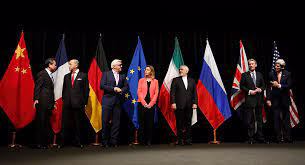
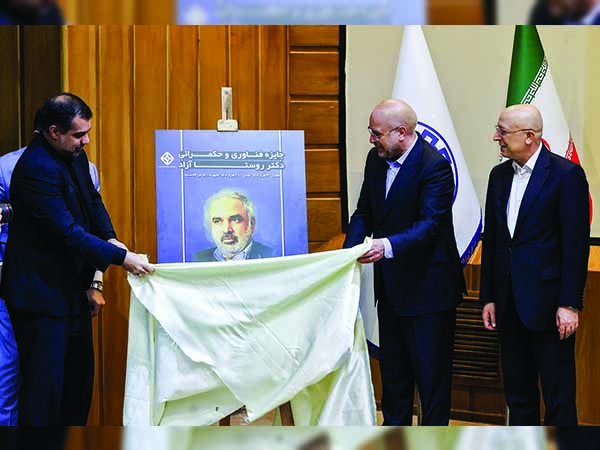 جایزه دکتر روستاآزاد
جایزه دکتر روستاآزاد
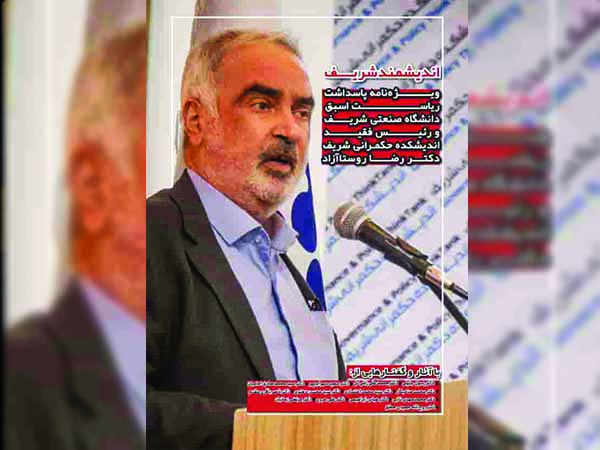 ویژهنامه
ویژهنامه
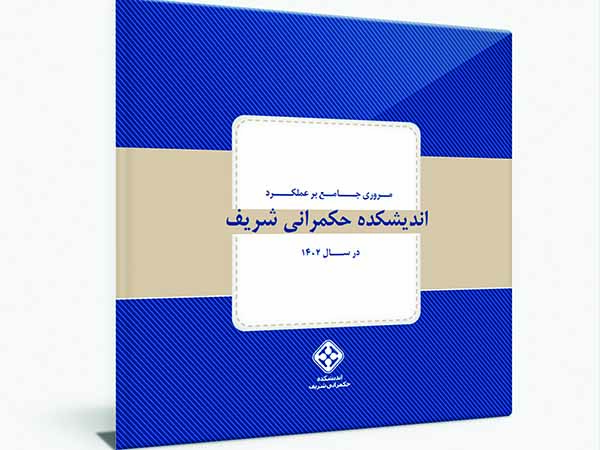 سالنامه 1403
سالنامه 1403
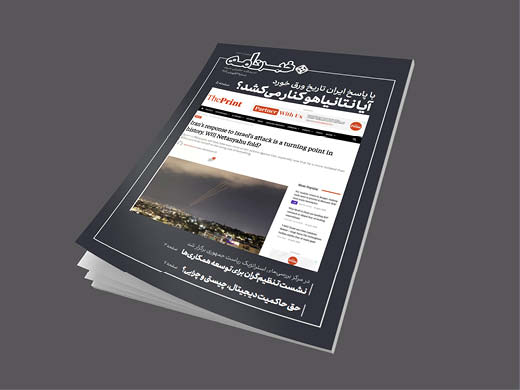 خبرنامه/شماره 22
خبرنامه/شماره 22
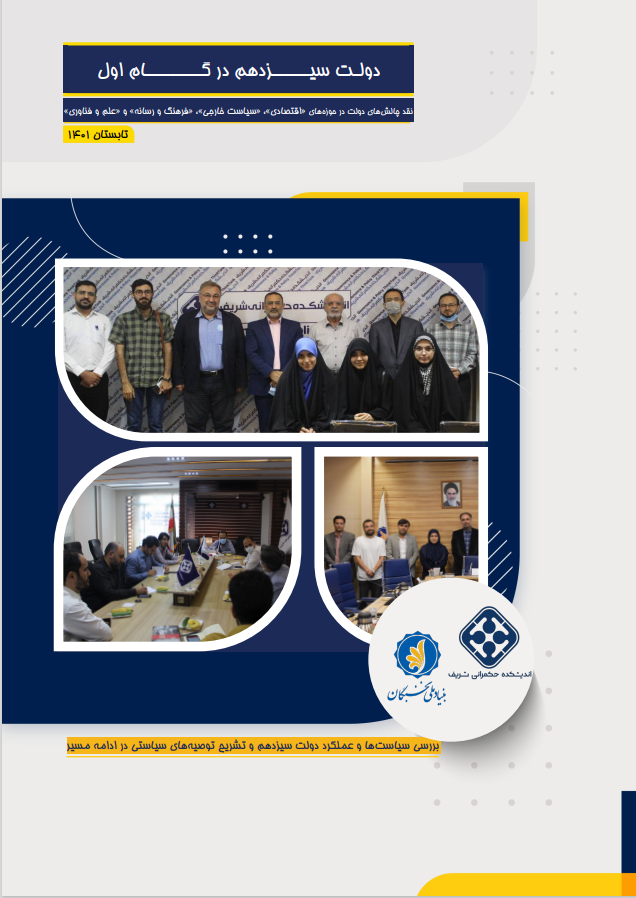 کتاب
کتاب
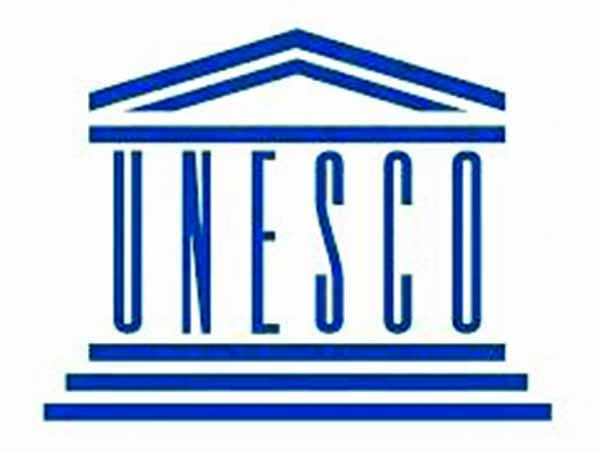 گزارش سیاستی
گزارش سیاستی
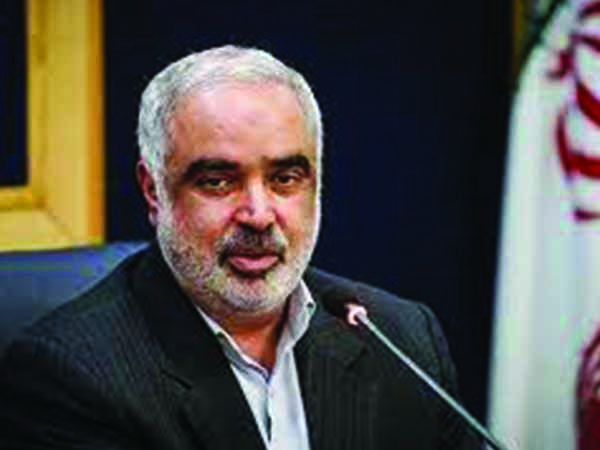 مراسم یادبود
مراسم یادبود